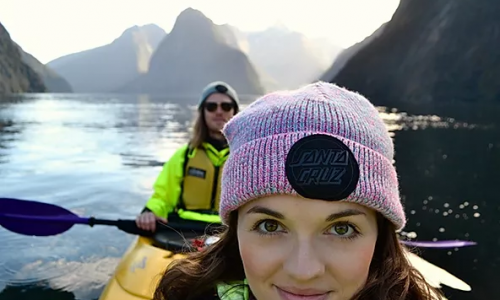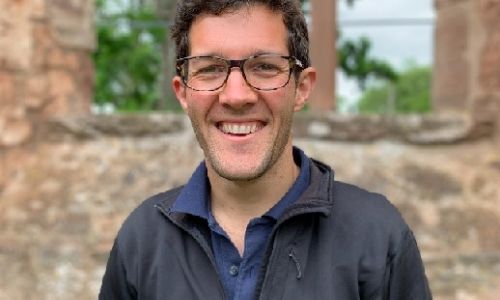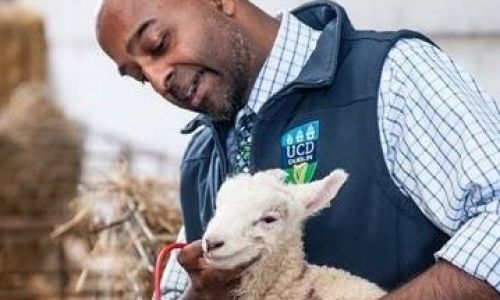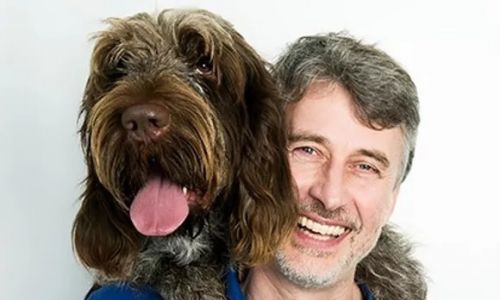Meet Rob: Director, The Horseback Consultancy Ltd & VetOffset
"As scientists, we respond to evidence, even when that evidence overturns traditional approaches, and as professionals, we take responsibility for our decisions. That does give the profession a potentially powerful voice when it comes to sustainability, but our notoriously busy lives can easily make it difficult to always be on the front foot."
Rob Jackson
Briefly describe your current role and professional interests
As a dual-qualified vet and rural surveyor, I now run a mixed discipline consultancy. The majority of my work is focussed on maximising free skeletal movement in the horse, particularly directed towards horses who appear not to be lame (through negative or inconclusive lameness work-ups) but are still not able to function normally and happily.
We are increasingly collaborating with the various teams studying objective movement analysis in order to further our understanding of issues that can affect equine biomechanics. In addition, the consultancy provides estate management support, a research and interpretation service for historic stables, and a veterinary advisory function to the National Trust.
VetOffset is there for the carbon-footprints that we either can't or can't yet avoid and offers verifiable planting of native broadleaf trees and hedges in the UK (one of Europe's least wooded countries) to create new wildlife habitats as well as gradually absorbing all those carbon emissions. We choose only UK-grown trees well-suited to their locations and likely future climate conditions, avoiding chemicals wherever possible and instead championing things like natural mycorrhizae at planting to reduce the young trees' reliance on supplementary watering. Because climate change is a global issue, at the same time as planting new woodlands here in the UK, we are currently researching the best ways to partner international efforts to halt deforestation elsewhere in the world. If we can save a tree in an existing rainforest for every tree we plant here then the positive effects of our work will have an even greater reach.
When did you know you wanted to work in the veterinary profession?
From childhood. Growing up, my favourite place in the world was my paternal grandparents' house in the Surrey Hills where there were frequently horses grazing in their fields. I was fascinated by the countryside and everything equine from that point on. I milked cows and worked with sheep and pigs throughout my teenage years, and rode horses at every opportunity. It seemed a natural step to move into the veterinary profession. But I remained captivated by the British countryside and how it worked, so also attained a post-graduate diploma in rural practice surveying, and went on to work in both spheres.
What is your favourite part of the job?
Through my two professions, I have been blessed with some extraordinary experiences.
I have to mention the obvious career highs as an equine orthopaedic surgeon, a British team vet (including at the World Equestrian Games in Kentucky), being property manager for the 12,000-acre Lulworth Estate in Dorset and general manager of three National Trust properties, and having now worked with horses on five continents.
But I also love the comparatively ordinary days just helping a pony to canter more comfortably on both reins, teaching students, surveying a tenant farm or simply getting out into the countryside and planting trees.
What is the most challenging part of your job?
Hands-down it has to be the travel. I learned years ago that international journeys are not the glamorous things they purport to be, but I also spend way too much time driving for work around the UK (currently 50,000 miles a year). Neither of those is remotely sustainable for either the planet nor, frankly, for me. In an effort to start off-setting my own vast carbon-footprint whilst I worked out ways of reducing my travel-related carbon emissions I began planting native trees and hedge plants (over 5,000 in 2019, and already over 1000 in 2020); a couple of other vets worried about their carbon footprints asked me to plant some trees on their behalf, and seemingly out of nowhere the idea for VetOffset was born.
Do you have any tips for achieving a good work-life balance?
Throw yourself into your work and be as good at it as you can be. However, when you're not supposed to be working, stop working completely and throw yourself whole-heartedly into something else - it doesn't matter what it is, just don't allow work to encroach upon it. Remember you are not irreplaceable. You owe it to your clients and your patients to be on top of your game. You can only be at the top of your game if you look after yourself first. If you fail to look after yourself you will end up being replaced. QED.
How do veterinary professionals currently help to drive sustainability?
Not only is there a rapidly growing awareness of what the human race is doing to the planet but vets, by their nature, are caring people focussed on doing the right thing by other species. As scientists, we respond to evidence, even when that evidence overturns traditional approaches, and as professionals, we take responsibility for our decisions. That does give the profession a potentially very powerful voice when it comes to sustainability, but our notoriously busy lives can easily make it difficult to always be on the front foot. There are already some notable sustainability leaders within the veterinary community and we should celebrate their work; they are already making significant positive differences.
What do you feel are the major opportunities to drive sustainability in the veterinary sector?
A growing number of practices and practice groups are formally addressing the sustainability of their businesses, with some great results. The best success stories are where changes that have been made to improve sustainability have actually been demonstrated to improve the bottom-line as well - everyone wins! That said, as a whole, the profession is only just starting to catch on to these sustainability opportunities and there is a huge way to go before we can consider that we collectively have our house in order. I count myself amongst those with a lot more to do.
Ideally, we should all be reducing our carbon-footprints down to a bare minimum, requiring only the smallest of offsetting. The sooner we can get to that point the better, and obviously I'm talking about everyone, certainly not just the veterinary sector.
What are your top tips for veterinary professionals wishing to take the first steps to drive sustainability in their roles?
Sometimes the easiest way of making a start is simply to take a short walk away from your business (that could be literally or metaphorically) and then take a look at it "from the outside". If this was someone else's business and you were asked to objectively critique its sustainability what would you say? If it's clinic-based the biggest issues could be around heat-production and subsequent heat-loss. Are there opportunities for more sustainable heating (think wood-fired, heat-pumps and, increasingly, hydrogen) in order to quickly ease away from our reliance on fossil fuels?
Despite being "so old hat" that most people seem to have forgotten about it, increasing the thermal insulation levels in our properties can have a huge positive effect on both the environment and our bank balances. All waste is bad, heat-waste is no different!
If it's ambulatory, the big-ticket item is always vehicle fuel (generally for large vehicles carrying just one person, but with a serious weight of kit in the back!). Few have the luxury of being able to change their vehicles overnight, but we all have the opportunity to consider what we replace them with when the time comes for a change.
Again, both the environment and our bank balances stand to benefit by choosing the most reliably efficient vehicles, and by considering how we most effectively use those vehicles. Those are just obvious starting points though and most of the elements of our workplaces and work practices have the potential to be tweaked - overhauled if necessary - to make things better.
If you haven't got a copy already, I would urge everyone to obtain and read fellow vet Jen Gale's new book "The Sustainable(ish) Living Guide: Everything you need to know to make small changes that make a big difference". It's a beautifully written, thought-provoking guide to challenging our own status quos and taking relatively straightforward steps towards lessening our impact on the environment. Highly recommended!
Personally speaking, my wife (also a vet), our children and I are on a set of major missions to reduce food-miles, drive-less/walk-more, minimise waste and to remove single-use plastics from our lives. The joyful upside of that last quest (and perhaps all of those quests) is that the alternatives are generally so much more agreeable anyway...
If you could wave a magic wand and make one improvement to drive the sustainability impact of the veterinary profession, what would it be?
That's easy! I'd give everyone just a little bit more time. Time to consider the way they worked, time to implement the things they know they wish they could do, and time to properly relax and recharge between their busy working days.
Meet the people who embed sustainability into their life and work
From the veterinary nurses who advise on responsible antibiotic use and lead welfare campaigns, to the practice managers who actively reduce the environmental footprint of their workplace — we recognise the scale of your impact.



